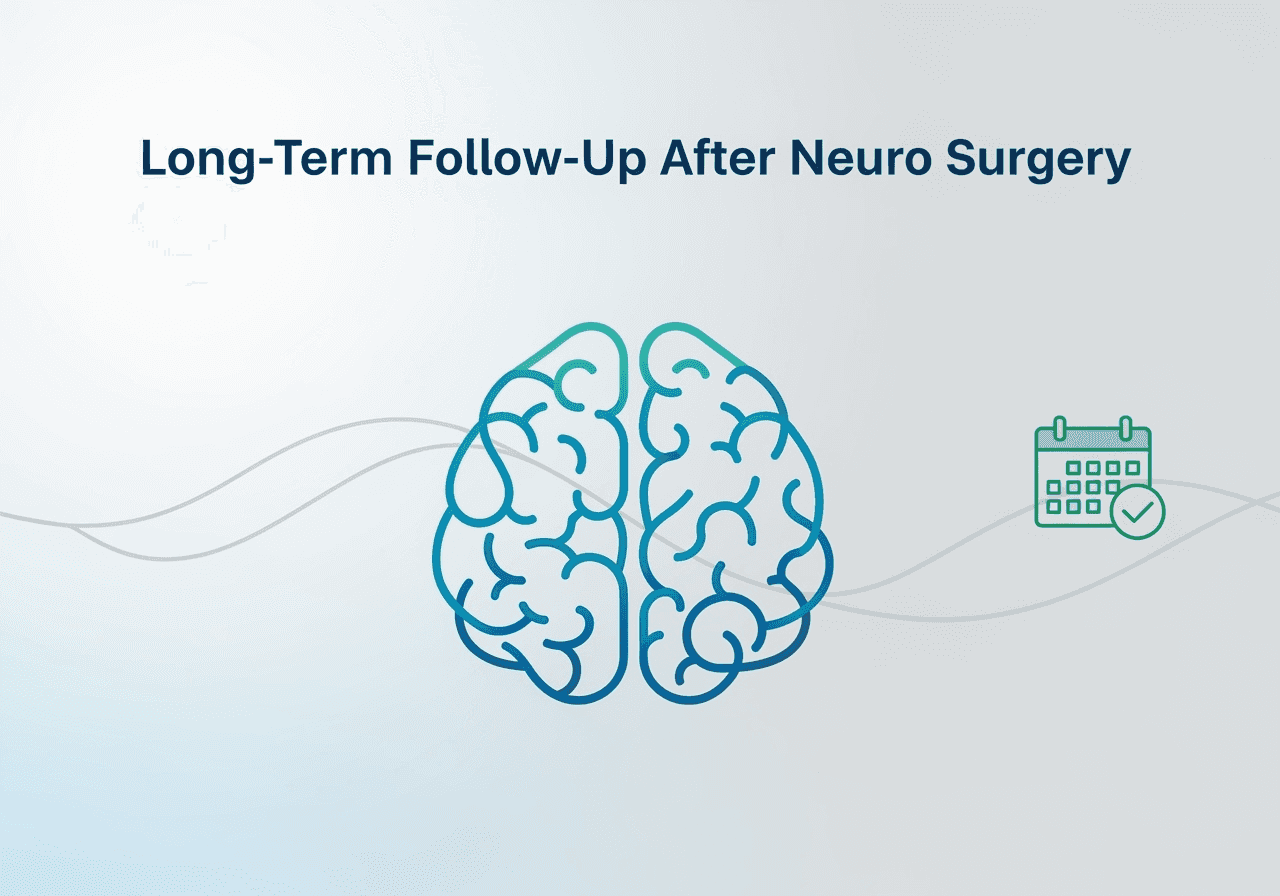
Long-Term Follow-Up After Neuro Surgery
30 Oct, 2025
 Healthtrip
Healthtrip- < li>Where Should Long-Term Follow Up Take Place? Considering Options Like Memorial Sisli Hospital, Fortis Hospital, Noida, and Vejthani Hospital
- Why is Long-Term Follow-Up Critical After Neurosurgery? Understanding the Benefits
- Who is Involved?:The Healthcare Team at Places Like Saudi German Hospital Cairo, Egypt and Memorial Bahçelievler Hospital
- What Does Long-Term Follow-Up Entail?: Tests, Scans, and Consultations at Facilities such as LIV Hospital, Istanbul
- How to Prepare for Long-Term Follow-Up appointments: A Guide for Patients at Mount Elizabeth Hospital
- Examples of Successful Long-Term Follow-Up Programs: Case Studies at Singapore General Hospital and Quironsalud Hospital Murcia < li>Conclusion: The Importance of Continued Care and Follow-Up After Neurosurgery
The Importance of Regular Check-Ups
Regular check-ups are the cornerstone of long-term follow-up after neuro surgery. These appointments allow medical professionals to monitor your progress, detect potential complications early, and make necessary adjustments to your treatment plan. It's like taking your car for routine maintenance – even if everything seems fine, a skilled mechanic can identify minor issues before they escalate into major problems. These check-ups typically involve neurological examinations, imaging studies (such as MRI or CT scans), and blood tests. Think of it as a comprehensive health audit, ensuring that your brain and body are functioning optimally. For instance, if you had surgery at Memorial Sisli Hospital in Istanbul, your follow-up might involve consultations with your neurosurgeon and regular imaging to check for any signs of recurrence or complications. We, at Healthtrip, can help you schedule these crucial appointments, ensuring you stay on top of your health and well-being.
Most popular procedures in India
Potential Complications to Watch Out For
While neuro surgery aims to improve your health, it's essential to be aware of potential complications that may arise during the recovery period. These can range from infections and blood clots to seizures and hydrocephalus (fluid accumulation in the brain). Being vigilant and recognizing the signs and symptoms of these complications is crucial for prompt intervention. Imagine your body as a complex machine – any disruption to its delicate balance can trigger a cascade of events. For example, if you experience persistent headaches, fever, or changes in vision after surgery at Vejthani Hospital in Bangkok, it's vital to seek immediate medical attention. Healthtrip provides resources and support to help you understand these potential risks and empowers you to advocate for your health. We believe knowledge is power, and by being informed, you can actively participate in your recovery journey.
Rehabilitation and Physical Therapy
Rehabilitation plays a critical role in regaining lost function and improving your quality of life after neuro surgery. Depending on the type of surgery and the extent of neurological deficits, rehabilitation may involve physical therapy, occupational therapy, and speech therapy. Think of it as retraining your brain and body to work together seamlessly. Physical therapy focuses on improving strength, balance, and coordination, while occupational therapy helps you adapt to daily activities. Speech therapy addresses communication difficulties, such as aphasia (difficulty speaking or understanding language). For instance, if you underwent surgery at Fortis Hospital, Noida, a comprehensive rehabilitation program might include exercises to improve motor skills and cognitive function. At Healthtrip, we connect you with experienced therapists and rehabilitation centers to ensure you receive personalized care tailored to your specific needs. We understand that recovery is a marathon, not a sprint, and we're here to support you every step of the way!
Wellness Treatments
Give yourself the time to relax
Lowest Prices Guaranteed!

Lowest Prices Guaranteed!
Lifestyle Adjustments and Emotional Support
Recovering from neuro surgery requires more than just medical treatment; it also involves making significant lifestyle adjustments and addressing emotional well-being. This may include adopting a healthier diet, engaging in regular exercise (as tolerated), managing stress, and seeking counseling or support groups. Imagine your life as a tapestry – surgery may have altered some threads, but you can weave new ones to create a beautiful and fulfilling pattern. Emotional support is particularly important, as neuro surgery can take a toll on your mental health. Feelings of anxiety, depression, and isolation are common. Consider seeking support from family, friends, or a therapist. Healthtrip recognizes the importance of holistic care and offers resources to help you navigate these emotional challenges. For example, if you received treatment at Saudi German Hospital Cairo, Egypt, connecting with a support group of fellow patients can provide invaluable emotional support and shared experiences. We believe in treating the whole person, not just the illness, because your mental and emotional health are just as important as your physical recovery.
Where Should Long-Term Follow Up Take Place? Considering Options Like Memorial Sisli Hospital, Fortis Hospital, Noida, and Vejthani Hospital
Choosing the right location for long-term follow-up after neurosurgery is a crucial decision that impacts not only your physical well-being but also your peace of mind. It's about finding a facility that offers top-notch medical expertise, a supportive environment, and convenient access to the services you need. Think of it as selecting a trusted partner for your continued health journey. Hospitals like Memorial Sisli Hospital in Istanbul, Fortis Hospital, Noida, and Vejthani Hospital in Bangkok stand out as excellent options due to their comprehensive neurological services, experienced medical teams, and commitment to patient care. These facilities understand that neurosurgery is just the beginning of a longer process, and they are well-equipped to provide the continuous support you require. When making your selection, consider factors such as the hospital's reputation for neurological care, the availability of advanced diagnostic and treatment technologies, and the expertise of the neurosurgeons and support staff. It's also important to think about practical considerations like location, accessibility, and the availability of language support services if you're traveling from abroad. After all, the goal is to find a place where you feel comfortable, confident, and well-cared for during this important phase of your recovery.
Considering International Options
For those considering medical travel, the decision of where to receive long-term follow-up care becomes even more significant. Hospitals like Memorial Sisli Hospital and Vejthani Hospital offer compelling reasons to consider international destinations. These hospitals have invested heavily in state-of-the-art facilities and attract world-renowned neurosurgeons and specialists. Choosing an international facility can provide access to innovative treatments and technologies that might not be readily available in your home country. Furthermore, many international hospitals cater specifically to medical tourists, offering comprehensive packages that include accommodation, transportation, and language assistance, making the entire experience smoother and less stressful. It's not just about the medical care; it's about the overall experience. Imagine recovering in a comfortable, supportive environment while also having the opportunity to explore a new culture and enjoy a change of scenery. However, it's crucial to do your research and ensure that the hospital you choose is accredited, has a strong track record of success, and offers clear communication and support throughout the entire process. Healthtrip can assist you in navigating these choices, providing information and support to help you make the best decision for your individual needs.
Why is Long-Term Follow-Up Critical After Neurosurgery? Understanding the Benefits
Long-term follow-up after neurosurgery isn't just a formality; it's a critical component of your overall recovery and well-being. Think of it as a safety net, ensuring that any potential complications are detected and addressed promptly. Neurosurgery, while often life-saving, can have lasting effects on the brain and nervous system. Long-term follow-up allows your medical team to monitor your progress, assess the effectiveness of the surgery, and identify any new or recurring issues. This might include managing pain, addressing neurological deficits, and monitoring for signs of infection or tumor recurrence. More than that, it provides an opportunity to optimize your medication regimen, adjust your rehabilitation program, and offer emotional support as you navigate the challenges of recovery. It’s essential to remember that healing is a journey, not a destination, and regular follow-up appointments are like pit stops along the way, ensuring you stay on the right track. By keeping these appointments, you're not just extending your life; you're enhancing its quality and ensuring you’re living it to the fullest.
Preventing Complications and Ensuring Optimal Recovery
The benefits of long-term follow-up extend far beyond simply detecting problems. Regular check-ups allow your healthcare team to proactively manage your health, preventing potential complications from escalating. For example, they can monitor for signs of hydrocephalus (fluid accumulation in the brain), which can occur months or even years after surgery. They can also assess your cognitive function, addressing any memory or concentration issues that may arise. Furthermore, long-term follow-up provides an opportunity to fine-tune your treatment plan, ensuring that you receive the most effective and personalized care possible. This might involve adjusting your medications, recommending specific therapies, or providing guidance on lifestyle modifications. It’s about empowering you to take control of your health and make informed decisions about your care. Healthtrip understands the importance of this ongoing support and can connect you with renowned hospitals like Fortis Hospital, Noida, known for their comprehensive post-operative care programs. These programs are designed to provide you with the tools and resources you need to thrive long after your surgery.
Who is Involved?: The Healthcare Team at Places Like Saudi German Hospital Cairo, Egypt and Memorial Bahçelievler Hospital
Long-term follow-up is a collaborative effort, involving a team of dedicated healthcare professionals who work together to ensure your well-being. This team typically includes your neurosurgeon, neurologist, nurses, rehabilitation therapists, and other specialists as needed. Your neurosurgeon will oversee your overall care, monitor your surgical site, and address any structural issues. Your neurologist will assess your neurological function, manage your medications, and address any seizures or other neurological symptoms. Nurses provide essential support, monitoring your vital signs, administering medications, and educating you about your care. Rehabilitation therapists, such as physical therapists, occupational therapists, and speech therapists, help you regain lost function and improve your quality of life. Hospitals like Saudi German Hospital Cairo, Egypt, and Memorial Bahçelievler Hospital emphasize a multidisciplinary approach, ensuring that you receive comprehensive care from a team of experts. This team-based approach not only improves outcomes but also provides a more supportive and personalized experience. After all, knowing that you have a team of caring professionals on your side can make a world of difference during your recovery.
The Importance of Patient-Centered Care
While the healthcare team plays a vital role in long-term follow-up, you, the patient, are the most important member of the team. Your active participation is crucial for ensuring the success of your recovery. This includes attending your appointments, following your treatment plan, communicating openly with your healthcare providers, and reporting any new or worsening symptoms. It's also important to be proactive about your health, asking questions, seeking clarification, and advocating for your needs. Remember, your healthcare team is there to support you, but ultimately, you are in control of your health journey. Patient-centered care is at the heart of successful long-term follow-up, and hospitals like Saudi German Hospital Cairo, Egypt, and Memorial Bahçelievler Hospital, prioritize open communication and shared decision-making. They understand that a collaborative approach, where your voice is heard and your preferences are respected, leads to better outcomes and a more fulfilling experience. Healthtrip can help you find facilities that embrace this philosophy, ensuring that you receive the personalized care you deserve.
Also Read:
What Does Long-Term Follow-Up Entail?: Tests, Scans, and Consultations at Facilities such as LIV Hospital, Istanbul
Long-term follow-up after neurosurgery is a comprehensive process designed to closely monitor a patient's recovery and identify any potential complications or recurrence of the underlying condition. This involves a multi-faceted approach, including regular clinical assessments, advanced imaging techniques, and specialized consultations. The specific tests and scans performed will vary depending on the initial diagnosis, the type of surgery performed, and the individual patient's progress. For instance, at facilities like LIV Hospital, Istanbul, patients might undergo routine MRI or CT scans to visualize the brain or spine and detect any structural changes or abnormalities. These scans are crucial for identifying early signs of tumor recurrence, hydrocephalus, or other post-surgical issues that might not be apparent through physical examination alone. Neuropsychological testing may also be incorporated to assess cognitive functions such as memory, attention, and executive function, helping to determine if there are any subtle cognitive deficits that require intervention. Furthermore, consultations with neurologists, neurosurgeons, and other specialists, such as physical therapists or pain management experts, are integral to the follow-up process. These consultations allow for a thorough evaluation of the patient's overall well-being, addressing any specific concerns or symptoms they may be experiencing and tailoring the treatment plan accordingly. The frequency and duration of these follow-up appointments are determined by the individual's risk profile and clinical course, ensuring that each patient receives personalized and attentive care.
Beyond the technical aspects, long-term follow-up also encompasses a compassionate and supportive approach to patient care. Healthtrip understands that undergoing neurosurgery can be a physically and emotionally challenging experience. Therefore, the follow-up process includes opportunities for patients to discuss their concerns, anxieties, and any difficulties they may be facing with their healthcare team. This open communication is essential for building trust and ensuring that patients feel empowered to actively participate in their own recovery. Moreover, patients receive education and guidance on how to manage their health in the long term, including advice on medication management, lifestyle modifications, and strategies for coping with any potential side effects or complications. This holistic approach to follow-up care aims to optimize the patient's quality of life and promote their overall well-being, enabling them to return to their daily activities and live fulfilling lives. The meticulous attention to detail and the commitment to personalized care at facilities like LIV Hospital, Istanbul, highlight the importance of long-term follow-up in achieving the best possible outcomes after neurosurgery. Healthtrip is dedicated to connecting patients with world-class medical centers that prioritize comprehensive and compassionate post-operative care.
How to Prepare for Long-Term Follow-Up appointments: A Guide for Patients at Mount Elizabeth Hospital
Preparing for long-term follow-up appointments after neurosurgery is essential to ensure that you receive the most effective and personalized care possible. At facilities like Mount Elizabeth Hospital, where patient-centered care is paramount, being well-prepared can significantly enhance the quality of your consultation and contribute to a more comprehensive assessment of your progress. A crucial first step is to compile a detailed record of your health history since your last appointment. This should include any new symptoms or changes in existing symptoms, such as headaches, dizziness, vision problems, or cognitive difficulties. Be as specific as possible, noting the frequency, duration, and intensity of these symptoms. Additionally, keep track of any medications you are currently taking, including dosages and frequency, as well as any over-the-counter medications or supplements. Bring this list with you to your appointment, or even better, send it to the hospital in advance, so your healthcare team has ample time to review it. It's also beneficial to prepare a list of questions or concerns that you want to discuss with your doctors. This will help you stay focused during the appointment and ensure that all your queries are addressed. Don't hesitate to ask about anything that is on your mind, whether it's related to your recovery, potential complications, or long-term prognosis. Remember, your healthcare team is there to support you and provide you with the information you need to make informed decisions about your health.
Beyond the practical aspects, preparing emotionally and mentally for your follow-up appointments is equally important. Neurosurgery can have a significant impact on your emotional well-being, and it's normal to experience a range of emotions, such as anxiety, fear, or uncertainty. Before your appointment, take some time to reflect on how you are feeling and identify any concerns or anxieties that may be weighing on your mind. Consider bringing a family member or friend with you for support. Having someone by your side can provide comfort and help you remember important details discussed during the appointment. During the consultation, be open and honest with your healthcare team about your emotional state. Sharing your feelings can help them tailor your treatment plan to address not only your physical needs but also your emotional well-being. Mount Elizabeth Hospital, and other leading medical centers affiliated with Healthtrip, recognize the importance of holistic care and are committed to providing patients with the resources and support they need to thrive. By taking the time to prepare both practically and emotionally for your follow-up appointments, you can actively participate in your recovery and optimize your long-term health outcomes. Healthtrip is here to assist you in connecting with hospitals that prioritize comprehensive patient care and offer personalized support throughout your recovery journey.
Examples of Successful Long-Term Follow-Up Programs: Case Studies at Singapore General Hospital and Quironsalud Hospital Murcia
Successful long-term follow-up programs are characterized by their comprehensive approach, patient-centered focus, and commitment to continuous improvement. Examining case studies from leading institutions such as Singapore General Hospital and Quironsalud Hospital Murcia provides valuable insights into the key elements that contribute to positive patient outcomes. At Singapore General Hospital, their neurosurgery follow-up program emphasizes a multidisciplinary approach, bringing together neurosurgeons, neurologists, radiologists, and specialized nurses to provide coordinated care. One case involved a patient who underwent surgery for a complex brain tumor. The program incorporated regular MRI scans to monitor for any signs of recurrence, as well as neuropsychological assessments to track cognitive function. When subtle cognitive deficits were detected, the patient was promptly referred to a rehabilitation specialist, leading to targeted interventions that significantly improved their quality of life. This proactive approach, combined with ongoing patient education and support, underscores the importance of early detection and personalized care in achieving successful long-term outcomes. The hospital also leverages technology to facilitate remote monitoring and communication, allowing patients to easily access their medical records and communicate with their healthcare team from the comfort of their homes.
Similarly, Quironsalud Hospital Murcia has implemented a robust follow-up program that prioritizes patient engagement and shared decision-making. A case study involved a patient who had undergone spinal surgery. The follow-up protocol included regular physical therapy sessions, pain management consultations, and psychological support. The hospital uses a patient-reported outcome measurement system, allowing patients to track their progress and provide feedback on their experience. This data is used to continuously improve the program and ensure that it meets the evolving needs of patients. Moreover, the program includes a peer support group, where patients can connect with others who have undergone similar procedures, sharing their experiences and offering mutual encouragement. This sense of community can be invaluable in helping patients cope with the challenges of recovery and maintain a positive outlook. These examples highlight the importance of a holistic, patient-centered approach to long-term follow-up. By combining advanced medical technology with compassionate care and ongoing support, healthcare providers can empower patients to actively participate in their recovery and achieve the best possible outcomes. Healthtrip is committed to connecting patients with hospitals like Singapore General Hospital and Quironsalud Hospital Murcia, which are at the forefront of neurosurgical care and offer comprehensive follow-up programs designed to optimize long-term health and well-being.
Conclusion: The Importance of Continued Care and Follow-Up After Neurosurgery
In conclusion, the importance of continued care and follow-up after neurosurgery cannot be overstated. It represents a critical component of the overall treatment journey, ensuring that patients receive the necessary support and monitoring to achieve the best possible long-term outcomes. Neurosurgery, while often life-saving, can have a profound impact on a patient's physical, emotional, and cognitive well-being. Long-term follow-up provides a structured framework for addressing any potential complications or side effects, detecting recurrence of the underlying condition, and optimizing the patient's overall quality of life. Without consistent monitoring and proactive intervention, subtle changes or emerging issues may go unnoticed, potentially leading to more serious problems in the future. This is where Healthtrip plays a crucial role, connecting patients with world-class medical facilities that prioritize comprehensive and compassionate post-operative care. From advanced imaging techniques to specialized consultations and personalized rehabilitation programs, these facilities offer a holistic approach to follow-up that addresses the unique needs of each patient. Moreover, the follow-up process provides an opportunity for patients to build a strong relationship with their healthcare team, fostering open communication and shared decision-making. This collaborative approach empowers patients to actively participate in their own recovery and make informed choices about their health.
Furthermore, long-term follow-up is essential for gathering valuable data and insights that can be used to improve neurosurgical practices and outcomes in the future. By tracking patient progress over time, healthcare providers can identify patterns, refine treatment protocols, and develop innovative strategies for managing neurological conditions. This continuous cycle of learning and improvement ultimately benefits all patients seeking neurosurgical care. Healthtrip is dedicated to promoting the importance of long-term follow-up and connecting patients with the resources they need to thrive after neurosurgery. Our network of trusted hospitals and healthcare professionals is committed to providing personalized, compassionate, and evidence-based care that extends far beyond the initial surgical procedure. By prioritizing continued care and follow-up, we can help patients achieve lasting health and well-being, enabling them to live fulfilling lives with confidence and optimism. Whether you are seeking routine monitoring, specialized rehabilitation, or simply a supportive community, Healthtrip is here to guide you every step of the way, ensuring that you receive the highest quality care and achieve the best possible long-term outcomes. Remember, the journey to recovery doesn't end with surgery; it's a continuous process that requires dedication, support, and a unwavering commitment to your health.
Also Read:
Related Blogs
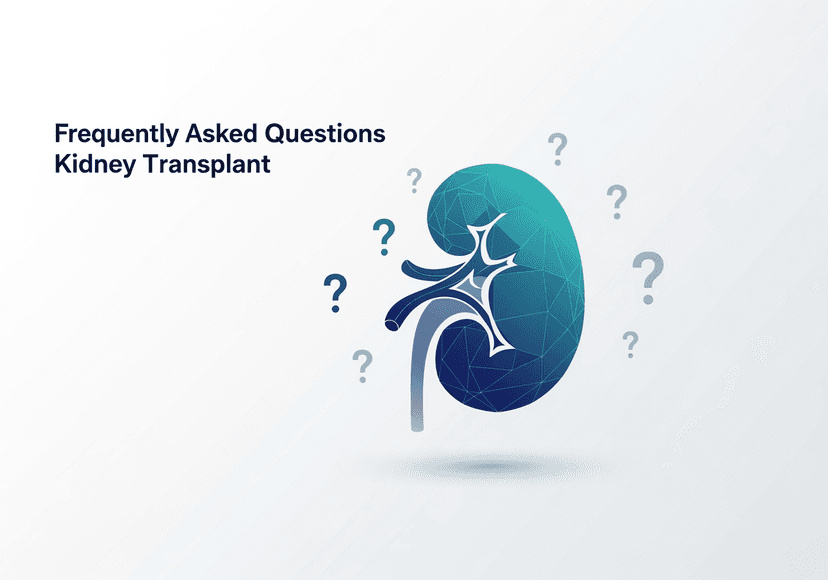
Frequently Asked Questions About Kidney Transplant
Detailed insights into kidney transplant – doctors, hospitals, technology, recovery,
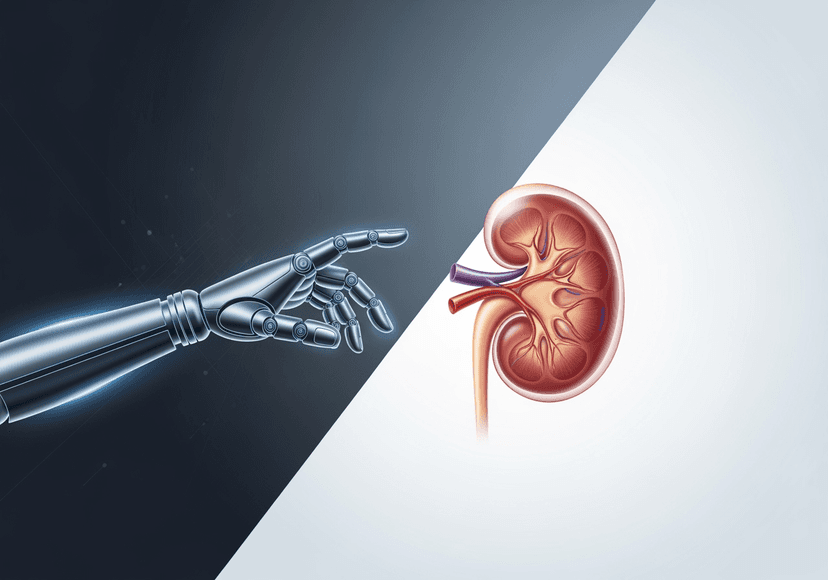
Advanced Robotic Technology Used in Kidney Transplant
Detailed insights into kidney transplant – doctors, hospitals, technology, recovery,

How Healthtrip Supports Foreign Patients for Kidney Transplant in India
Detailed insights into kidney transplant – doctors, hospitals, technology, recovery,
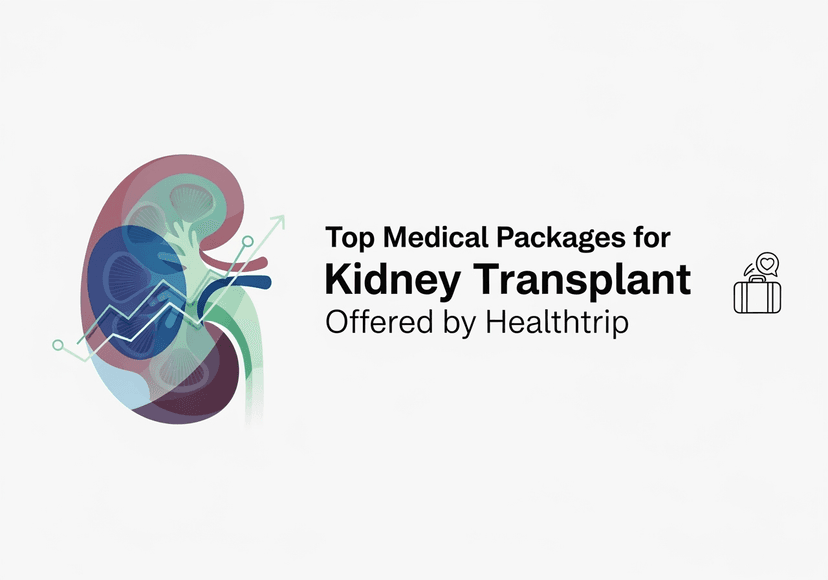
Top Medical Packages for Kidney Transplant Offered by Healthtrip
Detailed insights into kidney transplant – doctors, hospitals, technology, recovery,
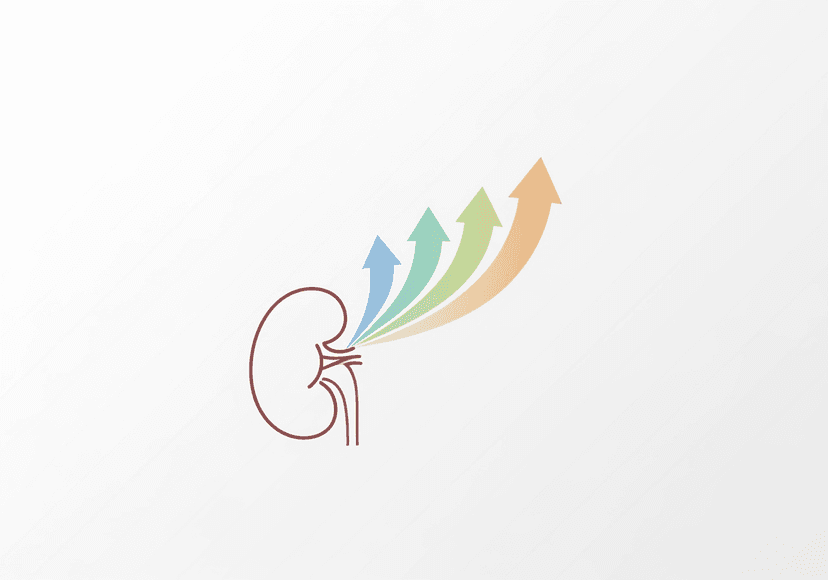
Stepwise Recovery Plan After Kidney Transplant
Detailed insights into kidney transplant – doctors, hospitals, technology, recovery,
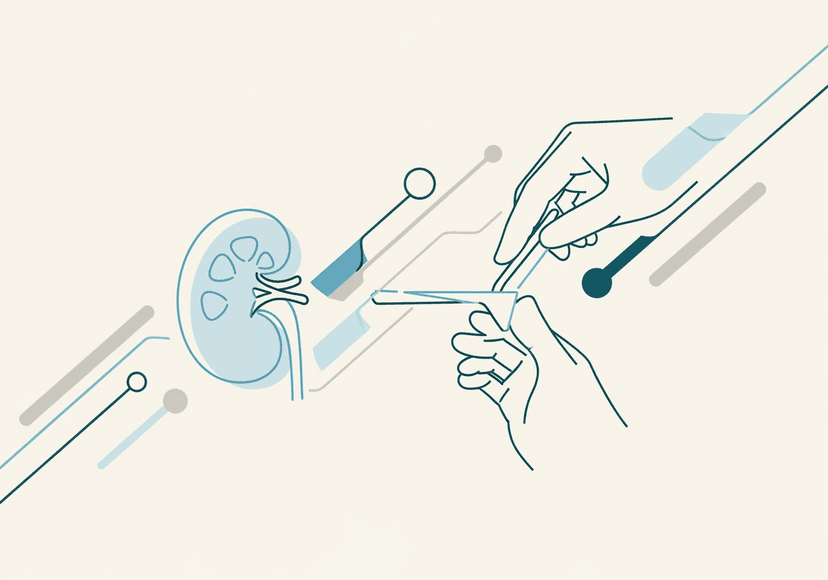
Choosing the Right Surgeon for Kidney Transplant
Detailed insights into kidney transplant – doctors, hospitals, technology, recovery,










